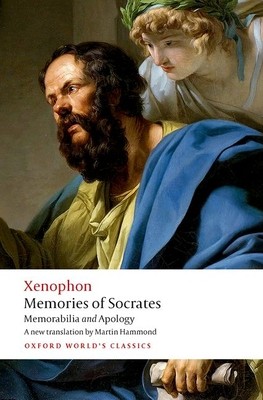
- We will send in 10–14 business days.
- Author: Xenophon
- Publisher: Oxford University Press, USA
- ISBN-10: 0198856091
- ISBN-13: 9780198856092
- Format: 13.2 x 18.8 x 2 cm, minkšti viršeliai
- Language: English
- SAVE -10% with code: EXTRA
Reviews
Description
'Who would you say knows himself?' In 399 BCE Socrates was tried in Athens on charges of irreligion and corruption of the young, convicted, and sentenced to death. Like Plato, an almost exact contemporary, in his youth Xenophon (c. 430-c. 354 BCE) was one of the circle of mainly upper-class young Athenians attracted to Socrates' teaching. His Memorabilia is both a passionate defence of Socrates against those charges, and a kaleidoscopic picture of the man he knew, painted in a series of mini-dialogues and shorter vignettes, with a varied and deftly characterized cast--entitled and ambitious young men, atheists and hedonists, artists and artisans, Socrates' own stroppy teenage son Lamprocles, the glamorous courtesan Theodote. Topics given Socrates' characteristic questioning treatment include education, law, justice, government, political and military leadership, democracy and tyranny, friendship, care of the body and the soul, and concepts of the divine. Xenophon sees Socrates as above all a supreme moral educator,coaxing and challenging his associates to make themselves better people, not least by the example of how he lived his own life. Self-knowledge, leading to a reasoned self-control, was for Socrates the essential first step on the path to virtue, and some found it uncomfortable. The Apology is a moving account of Socrates' behaviour and bearing in his last days, immediately before, during, and after his trial.
- Author: Xenophon
- Publisher: Oxford University Press, USA
- ISBN-10: 0198856091
- ISBN-13: 9780198856092
- Format: 13.2 x 18.8 x 2 cm, minkšti viršeliai
- Language: English English
coaxing and challenging his associates to make themselves better people, not least by the example of how he lived his own life. Self-knowledge, leading to a reasoned self-control, was for Socrates the essential first step on the path to virtue, and some found it uncomfortable. The Apology is a moving account of Socrates' behaviour and bearing in his last days, immediately before, during, and after his trial.


Reviews